Rachel Held Evans's Blog, page 12
December 16, 2014
From the Lectionary, Advent 3: Living Jubilee

© 2013 Charles Clegg, Flickr | CC-BY-SA | via Wylio
I’m blogging through the lectionary this year, with an emphasis on the prophets this Advent season (See Advent 1, Advent 2), and today’s reading comes from Isaiah 61:
‘The spirit of the Lord God is upon me, because the Lord has anointed me; he has sent me to bring good news to the oppressed, to bind up the brokenhearted, to proclaim liberty to the captives, and release to the prisoners; to proclaim the year of the Lord’s favor, and the day of vengeance of our God; to comfort all who mourn; to provide for those who mourn in Zion— to give them a garland instead of ashes, the oil of gladness instead of mourning, the mantle of praise instead of a faint spirit. They will be called oaks of righteousness, the planting of the Lord, to display his glory…
…I will greatly rejoice in the Lord, my whole being shall exult in my God; for he has clothed me with the garments of salvation, he has covered me with the robe of righteousness, as a bridegroom decks himself with a garland, and as a bride adorns herself with her jewels. For as the earth brings forth its shoots, and as a garden causes what is sown in it to spring up, so the Lord God will cause righteousness and praise to spring up before all the nations.”
Blogging with the lectionary has given me a new appreciation for pastors, let me tell you.
If I’m struggling to make sense of the lectionary text, if I get to the end of the week and I’m “just not feeling it,” I can simply skip a post and few people will notice, even fewer care. But a pastor can’t exactly approach the lectern on a Sunday morning, shrug her shoulders, and declare to the congregation, “You know what guys? I’m just not feeling this one.” (Well, I suppose she could but someone might throw a hymnal in response.)
...Nor can she wait until the following Tuesday afternoon to share her insights, as I have done here.
So thanks, pastors, for your faithfulness in listening to, learning from, and preaching the Word, even when it’s hard. Those of us sitting in the pews can never really know what that’s like to heed that call and we have no business demanding rapturous rhetoric week to week when, if put in your position, we would likely resort to showing Veggie Tale movies.
Isaiah 61 threw me for a loop last week, not because of its poverty but because of its riches. There were just too many facets to this diamond, too many dazzling angles. I didn’t know where to start. The poetry (“give them a garland instead of ashes, the oil of gladness instead of mourning, the mantle of praise instead of a faint spirit”), the theology, the call for social justice and the Christological implications—a thousand sermons live in these verses, a million possible reflections.
I guess what I’m trying to say is that sometimes Scripture silences me with awe. Even as my theology, my hermeneutics, and my understanding of the nature of the Bible have shifted and changed, this fact remains. I am caught in these words as in a current. I may struggle at times, but they will never let me go.
So I surrender....
***
Jesus preached a sermon on this passage once.
His listeners responded by trying to shove him off a cliff.
According to my copy of The Jewish Annotated New Testament, this was not because the Jews gathered hated the Gentiles Jesus referenced in his sermon, but because they felt left out. “The rejection of Jesus is not prompted by xenophobia,” says the entry on Luke 4:16-30, “it is prompted by Jesus’ refusal to provide his hometown with messianic blessing.”
Indeed, like the Beatitudes of the Sermon on the Mount, this passage reveals God’s special deference toward the poor and marginalized and can make the relatively privileged—the rich and the religious, the free and the full— feel a bit left out when the good news is delivered first to the perceived outsiders. It seems this tendency to equate justice and dignity for the marginalized with persecution of the privileged is an old one. But in this sermon and throughout his ministry, Jesus does not simply advocate for equality. He advocates for a complete reversal of priorities that blesses the poor, the outsiders, and the oppressed first and warns that those most in danger of missing the gospel are those who benefit from the world’s economy.
Jesus, invoking the words of Isaiah and sharing God’s dreams for the world, announces the inauguration of a new Kingdom in which the Year of Jubilee—when debts are forgiven, slaves set free, land and its abundance shared—is celebrated perpetually.
“At the center of biblical faith,” says Walter Brueggemann in a sermon on this passage, “is a command from God that curbs economic transactions by an act of communal sanity that restores everyone to proper place in the economy, because life in the community of faith does not consist of getting more but in sharing well.”
This is good news for those in desperate need of a fresh start. It’s bad news for those who kinda like things the way they are, those who buy the lie that all that extra stuff and power and prestige they won in the rat race make them more important, more worthy, more good.
…Which, let’s face it, is most of us.
***
Jesus reads Isaiah 61 from a scroll, rolls it up with dramatic flare, and declares that “today this scripture has been fulfilled in your hearing.”
It’s an exciting moment in the text.
But here’s the thing that tripped me up more than any other: I don’t see this Scripture fulfilled. I don’t see any Year of Jubilee.
Jesus purportedly rose from the dead more than 2,000 years ago and yet inequities still persist. Injustice remains. Slavery, in the words of songwriter Brett Dennen, is “stitched into fabric of my clothes” and more than 140 Pakistani children were gunned down for going to school today. Eric Garner is still dead, our prisons are still overcrowded, and I can’t seem to let go of that stupid grudge or my excess stuff or my idolatrous conviction that the most important thing in the whole world is to be right, to stay on top. The Empire economy doesn’t seem to be budging one bit...in the world or in my heart.
I suppose this is all part of the here-but-not-yet, inaugurated-but-not-consummated nature of the Kingdom, which we talk about a lot during Advent but which, let’s face it, doesn’t seem like enough for Ferguson right now, or for Sandy Hook and Peshawar.
Here’s Brueggeman’s take on things:
“What [Jesus] meant was, ‘I am Jubilee. Isaiah wrote about it. I am going to enact it.’ And he set about giving social power and social access and social goods to the poor and excluded. And says Luke, ‘They were filled with rage.’…They did not want to hear about the Jubilee that would curb their accumulation, not even for Jesus. It is a hard command…
….The only reason one might obey such a hard command that is concrete material, and economic divestment is that we have a different, larger vision of the future. We know what is promised and what will be, by the power of God. The command is to serve the great social vision of the Gospel, because that vision of God will only become reality when there is enough human obedience. This vision of God is not a vision of accumulation and monopoly so that those who have the most when they die win. This vision of God’s future is not about angels who have gone to heaven floating around in the sky with their loved ones. This vision, rather, is about God’s kingdom coming on earth as it already is in heaven. God’s rule where the practices of justice and mercy and kindness and peaceableness are every day the order of the day. It is a vision of the world as a peaceable neighborliness in which no one is under threat, no one is at risk, no one is in danger, because all are safe, all are valued, all are honored, all are cared for. And this community of peaceableness will come only when the vicious cycles of violent accumulation are broken.”*
“…That vision of God will only become reality when there is enough human obedience.”
Obedience.
As Liz Lemon might say, “Oh, that word bums me out.”
Obedience sounds hard. It sounds like work. It sounds like sacrifice.
The words we like best for Advent are words like wait and prepare. But paying attention to the prophets in this season reminds us that the sort of waiting and preparing that God calls us to as citizens of this upside-down Kingdom is the active kind that demolishes obstructions and levels the playing field, that binds the brokenhearted and liberates the imprisoned, that beat swords into plowshares and spears into pruning hooks, and bets it all by going all in on this irrational and seemingly impossible vision of peace on earth.
“From the outset of the Bible, certainly in God’s command of Sinai and surely in the ministry of Jesus,” writes Brueggemann, “signals of neighborliness are endlessly enacted. That finally is what is odd and true and demanding and glorious about the Gospel, that God wills and acts toward a neighborliness that curbs greed, vetoes fear, and removes the causes of violence. We baptized people are the ones who have singed on for this vision and act toward it.”
To listen to the prophets is to share God’s dreams for the world and to live into those dreams, to bet it all on that vision for the future. Jesus is our example for exactly how to do this. That’s what he meant when he said Scripture had been fulfilled with his presence among us. He was saying: Watch me; this is how it’s done. This is what Jubilee—God’s Kingdom— looks like in action.
In the last Advent reflection, I fretted that when it came to making a way for God and leveling the uneven ground, I wasn’t sure where to start. But that’s not true. I know exactly where to start. I start with Jesus.
If Jesus embodies God’s dreams for the world, then citizens of the Kingdom start by imitating him—by eating with the people he ate with, by telling the sort of stories he told, by healing and forgiving, by serving and praying, by resisting the temptations of power and money and violence, by breaking down religious barriers, by loving enemies, by showing humility and grace, by overturning some tables and dining at others, by being obedient to the point of death.
The good news we declare at Advent is that, in Jesus, God has given us everything we need for peace on earth. God has shown us the way. The question is: will we believe enough to obey, to live Jubilee?
...Lord, help me in my unbelief.
***
The Brueggemann quotes come from Inscribing the Text: Sermons and Prayers of Walter Brueggemann, which I cannot recommend enough.


December 7, 2014
Sunday Superlatives 12/7/14
Best Interview:
Micky Jones interviews Walter Brueggemann for On Being
“Beginning with the Exodus narrative and the Elijah narrative and the Jesus narrative, they are all storied about public transformation that happened by courage of uncredentialed people. These kinds of narratives feed our imagination and give us energy and courage. As the civil rights movement of the 1960s and ‘70s understood, singing is a way to keep your nerve. If you think about the Song of Miriam or those dangerous songs (many of which are in the mouths of women), we are invited to join that kind of singing which is a refusal to accept the dominant definitions of reality. Such singing and storytelling is an insistence that there is another way to experience the world and there is another way to act in the world. These are very important models and authorizations for us.”
Best Idea:
For Advent: Community Made Icon
Best Writing (nominated by Leigh Kramer):
Laura Turner with “The Mission”
“This is our home now, these 500 square feet of second-story apartment living with hardwood floors and a half-dishwasher. But it is our home only because someone else couldn’t afford it.”
Best Series (nominated by Alissa Smith)
Stacy Sergent with “The ABCs of Hospital Chaplaincy”
Best Reflection:
Christena Cleveland with “Advent/Darkness”
“Advent isn’t a holiday party. It doesn’t pressure us to conjure up a hopeful face, ring bells, and dismiss the foulest realities we face. Advent isn’t about our best world, it’s about our worst world. I think we eat the chocolate and put on the pageants because we don’t want to face the worst.”
Best Analysis:
Fania Davis with “This Country Needs a Truth and Reconciliation Process on Violence Against African Americans”
“This is urgent. Continued failure to deal with our country’s race-based historical traumas dooms us to perpetually re-enact them.”
Most Beautiful:
Ice and Snow
Most Powerful (nominated Andy Campbell)
Joshua DuBois at The Daily Beast with “The Day I Used Eric Garner’s Voice”
“I still feel disgusted with myself for letting some punk kid in a pizza shop and a police officer who couldn’t take a second to listen rob my friends and me of our dignity that day. I’m still curious who saw us bent over those tables. I still wonder what my wife thinks about her big courageous man coming home shaken, seeing my tears for the first time. It wasn’t the first time something like this had happened to me, but the first time as a married man with more to lose.”
Most Whimsical:
Artist Transforms Children's Drawings into Adorable Plush Toys
Most Thoughtful:
Jeremiah Gibbs with “Women Pastors and Male Privilege”
“While I’m networking with colleagues, she must figure out who believes should be in the room. Male pastors never wonder if they were passed over for a job because of their gender. Male pastors are significantly more likely to be selected to pastor large churches. Male pastors need to admit that they get to ‘just do their job’ while female pastors only get to do their job after they’ve proven that they should be given an opportunity to do so.”
***
So, what caught your eye online this week? What’s happening on your blog?


December 5, 2014
From the Lectionary, Advent 2: Leveling Uneven Ground

© 2013 Brian Smithson, Flickr | CC-BY | via Wylio
I’m blogging through the lectionary this year, with an emphasis on the prophets this Advent season (See Advent 1), and today’s reading comes from Isaiah 40:1-11:
Comfort, O comfort my people, says your God. Speak tenderly to Jerusalem, and cry to her that she has served her term, that her penalty is paid, that she has received from the Lord’s hand double for all her sins. A voice cries out: “In the wilderness prepare the way of the Lord, make straight in the desert a highway for our God. Every valley shall be lifted up, and every mountain and hill be made low; the uneven ground shall become level, and the rough places a plain. Then the glory of the Lord shall be revealed, and all people shall see it together, for the mouth of the Lord has spoken.” A voice says, “Cry out!” And I said, “What shall I cry?” All people are grass, their constancy is like the flower of the field. The grass withers, the flower fades, when the breath of the Lord blows upon it; surely the people are grass. The grass withers, the flower fades; but the word of our God will stand forever. Get you up to a high mountain, O Zion, herald of good tidings; lift up your voice with strength, O Jerusalem, herald of good tidings, lift it up, do not fear; say to the cities of Judah, “Here is your God!” See, the Lord God comes with might, and his arm rules for him; his reward is with him, and his recompense before him. He will feed his flock like a shepherd; he will gather the lambs in his arms, and carry them in his bosom, and gently lead the mother sheep.”
During Advent, we talk a lot about preparing for Jesus.
We talk about preparing our hearts with prayer and contemplation, preparing our homes with tinsel and trees, preparing our churches with pageants and carols and candles.
But what does it mean to prepare our world for the Incarnation? What does it mean to pave a way for God through a planet groaning from exploitation, through societies plagued by inequity, through religious and political systems corrupted by power and privilege? What does it mean to make a path for God through the streets of Ferguson, down the halls of power, across the bridges of New York City, down the aisles of our great cathedrals, through he slums of Mumbai?
If paying attention to the prophets aligns our dreams with the dreams of God and drives us to prophetic action, then the cries of Isaiah today are a reminder that sometimes this means getting in the demolition business. Sometimes this means flattening the mountains of privilege and power, clearing away the obstructions of legalism, and leveling the uneven ground of racial, economic, and religious inequity. After all, the sages have long told us that there is a time to plant and a time to uproot, a time to mend and a time to rend, a time to build and a time to tear down.
Maybe this Advent season should be a season of rending and uprooting, of tearing down and leveling the ground. Maybe this year we prepare for Jesus not simply by hanging up wreaths but by pulling down the broken, unjust systems that tend to obscure God’s presence among us by obscuring God’s image in our brothers and sisters. Maybe we prepare for God-with-us by marching with the protestors rather than watching TV, by “shutting it down” rather than lightning it up.
The prophets sparked the imaginations and directed the actions of Mary, Elizabeth, Zechariah, Simeon, and the John the Baptist who spoke of a God who topples rulers from their thrones and lifts up the poor, who scatters the proud and unites the humble. For John, the call of the prophets had practical implications, implications that cost him his reputation, his comforts, and eventually his life.
The miracle child of Elizabeth and Zechariah, John was probably expected to follow in the footsteps of his father and become a Temple priest—a position of some power and prestige. But John didn’t stay at the Temple among the ceremonial baths. John went out to the rivers, to the desert, to the people. Calling them to a single, dramatic baptism to symbolize a reoriented heart, he declared that “every valley shall be filled, and every mountain and hill shall be made low, and the crooked shall be made straight, and all flesh shall see the salvation of God.”
“Prepare the way of the Lord,” he told the people, “make his paths straight.”
In other words: God’s on the move. No mountain or hill, no ideology or ritual or requirement or law, can obstruct Him any longer. Temples cannot contain a God who flattens mountains, ceremonial baths a God who flows through rivers. A mighty and unjust Empire cannot withstand a God who levels the hills of inequity, who regards the powerful elite as withering grass, who raises up the humble and puts the powerful in their place.
Repentance, then, means reorienting around God's priorities. It means leaving the old ways of obstruction and supremacy behind and joining in the great paving-of-the-path, the making-of-the-way, the demolishing of every man-made impediment between God and God’s people so the whole earth can celebrate God’ uninhibited presence within it and welcome the arrival of the Messiah.
We cannot see Immanuel, God with us, if we cannot see God's image in our black brothers or our lesbian sisters. We cannot make way for baby Jesus in the manger if we cannot make way in our lives and our churches for the poor, the uneducated, the immigrants, and the marginalized. We cannot grasp God's eternal, everywhere Word so long as we believe that political power and religious prestige are anything but temporal blades of grass that wither in the winter. We cannot hear the voice crying from the wilderness if we stay shut up in our castles, hidden in our temples.
If you want to be a part of God’s work in the world, then help prepare the way. Level the uneven ground.
The promise of Advent is God is on the move.
The challenge of Advent is to move with Him.
I wish I knew where to start.


December 3, 2014
Are you being persecuted?
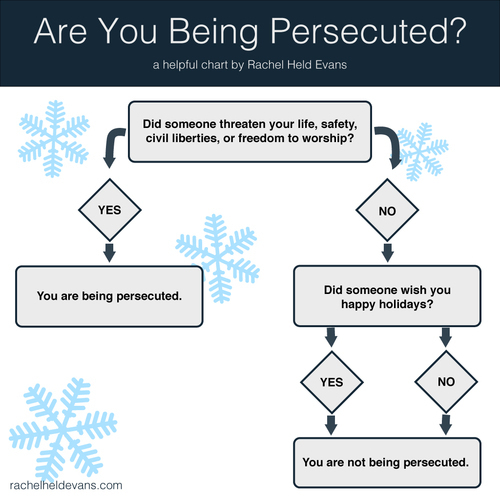
There is a pernicious rumor that resurfaces every Advent season and spreads across social media faster than a cold in a kindergarten class.
It’s the rumor that God can be “kept out” of Christmas.
You may have heard it from Kirk Cameron or an anchor at Fox News or an army of culture warriors who have once again worked themselves into a frenzy over the “War on Christmas.” Galvanized by fear, they storm checkout counters to demand that clerks issue them a “Merry Christmas” instead of “Happy Holidays” and cry persecution when inflatable manger scenes are moved from public courthouses to private property. They pine after the good-old-days when Christians could force Jewish kids to sing Christmas carols at school and they demand that every gift purchased, every mall opened late, every credit card maxed out must be done so in Jesus’ name or else Christ will be “kept out” of Christmas. They do it because someone told them that God needs a nod from the Empire to show up, forgetting somehow that the story of Advent is the story of how God showed up as a Jew in the Roman Empire.
In a barn.
As an oppressed minority.
To the applause of a few poor shepherds.
The whole story of Advent is the story of how God can’t be kept out. God is present. God is with us. God shows up—not with a parade but with the whimper of a baby, not among the powerful but among the marginalized, not to the demanding but to the humble. From Advent to Easter, the story of Jesus should teach us that God doesn’t need a mention in our pledge or on our money or over the loudspeaker at the mall to be present, and when we fight like spoiled children to “keep” God in those things, we are fighting for idols. We’re chasing wind.
Religious persecution is real. Suffering is real. But sharing the public square is not persecution and being wished “happy holidays” causes no one to suffer. We would do well this time of year to remember the words of the Apostle Paul from Philippians 2:
Do nothing out of selfish ambition or vain conceit. Rather, in humility value others above yourselves, not looking to your own interests but each of you to the interests of the others. In your relationships with one another, have the same mindset as Christ Jesus:
Who, being in very nature God,
did not consider equality with God something to be used to his own advantage;
rather, he made himself nothing
by taking the very nature of a servant,
being made in human likeness.
And being found in appearance as a man,
he humbled himself
by becoming obedient to death—
even death on a cross!
Updated from last year.


December 2, 2014
Gifts that Give Back 2014: Thistle Farms

Every holiday season, I like to share a few ideas for “gifts that give back,” products that not only make great stocking-stuffers but that also support organizations and ministries working to care for and empower the very people to whom Jesus first brought the gospel—the poor, the marginalized, the sick, and the imprisoned. And today I want to feature an organization committed to the long and difficult work of true healing.
Founded by Becca Stevens, and Episcopal priest and abuse survivor from Nashville, Thistle Farms is a social enterprise that trains and employs women recovering from abuse, prostitution, addiction, sex trafficking, imprisonment, and life on the streets. As the women heal through the therapy, community, and training offered by the Magdalene program, they offer healing to others through the aromatic bath and body products they make from essential oils and sell in stores and online. (Check out this New York Times article by Nicholas Kristof, which features one of the program’s graduates.)
At Thistle Farms, healing smells like lavender, tea tree, peppermint, and vanilla. It feels like lotion and body balm massaged into the skin. It looks like a flickering candle, and sounds like the whistle of a teapot singing from the new fair-trade Thistle Stop Café. And it takes time. “In making and selling oils,” Becca writes, “we are each reminded that healing is not an event, but rather a journey we walk as we make our way back to the memory of God.”
In my research and writing for Searching for Sunday, I relied heavily on Becca’s excellent book, Snake Oil: The Art of Healing and Truth-Telling, to make the important distinction between curing and healing. In a culture (and sometimes a Church) that values quick fixes and cure-alls, the call to heal is the call to enter into one another’s pain, anoint it as holy, and stick around no matter the outcome. Healing is relational. It takes time. It is inefficient, like a meandering river. “Healing,” writes Becca, “is the natural outcome of love. When we learn how to love, we learn how to heal.”
To support Thistle Farms’ healing work, consider these gift options:
Stocking Stuffers….
Lip Balm: simple, non-petroleum, all-natural, good smelling, no taste.
Body Balm: a rich, simple emollient with a hundred different uses; a must-have for chilly dry weather
Lotion: goes on silky and light, absorbs quickly and can be used all over the body.
Thistle Greeting Cards: new 5” x 7” greeting cards are screen printed in the Studios on hand crafted thistle paper.
Thistle Farms Mug: start your morning with this hefty cup for coffee or tea
Boys Bowtie: from Shared Trade partner Galeria dos Sonhos, this little bowtie might be the most adorable stocking stuffer out there.
Holiday Candle: choose between two favorite holiday scents, Balsam Fir, like taking a walk in a pine forest, or Holiday Spice, reminiscent of freshly baked cookies, right out of the oven.
Books…Snake Oil: The Art of Healing and Truth-Telling by Becca Stevens
The Way of Tea and Justice: Rescuing the World's Favorite Beverage From Its Violent History by Becca Stevens

Healing Oils Kit: five unique blends of essential oils that are as healing for the women who make them as for those who use them. Long known for potent healing qualities, essential oils from native plants were some of the first medicine. The set of all five roll-ons includes a free carrier.
Tea Survival Kit: the Tea Survival Kit provides employment for women in five social enterprises in three different countries. Thistle Farms buys components of the kit from the women and together they work towards economic freedom. Because of this kit, more women are able to break away from poverty, sex trafficking and stigmatizing disease. (See also the Tea Survival Kit & The Way of Tea & Justice Combo.)
Travel Kit: (my speaking agent sent me this as a gift last year and I love it) perfect sizes of your favorite Thistle Farms products for an overnight case and going through airport security

Musician Sara Evans has partnered with Thistle Farms to design two special gift bags. The first, at $45, includes which includes holiday candles, holiday bath salts, healing oil and lip balm. The second, at $100, includes a thermos & tea survival kit, thistle farmer mug, The Way of Tea & Justice book, thistle star book ornament, and gift card to Thistle Stop Café.
***
Of course, you can find many more options, including gift certificates, at the Thistle Farms store and you can always simply make a donation to this fantastic organization. Happy shopping!
***
So what organizations do you like to shop through during the holidays? Leave the links below for those of us who are getting a late start this year!



December 1, 2014
From the Lectionary, Advent 1: Dreaming With God

© 2014 Marjan Lazarevski, Flickr | CC-BY-ND | via Wylio
I’m blogging through the lectionary this year, with an emphasis on the prophets this Advent season, and today’s* reading comes from Isaiah 64:1-9:
“O that you would tear open the heavens and come down, so that the mountains would quake at your presence— as when fire kindles brushwood and the fire causes water to boil— to make your name known to your adversaries, so that the nations might tremble at your presence! When you did awesome deeds that we did not expect, you came down, the mountains quaked at your presence. From ages past no one has heard, no ear has perceived, no eye has seen any God besides you, who works for those who wait for him. You meet those who gladly do right, those who remember you in your ways. But you were angry, and we sinned; because you hid yourself we transgressed. We have all become like one who is unclean, and all our righteous deeds are like a filthy cloth. We all fade like a leaf, and our iniquities, like the wind, take us away. There is no one who calls on your name, or attempts to take hold of you; for you have hidden your face from us, and have delivered us into the hand of our iniquity. Yet, O Lord, you are our Father; we are the clay, and you are our potter; we are all the work of your hand. Do not be exceedingly angry, O Lord, and do not remember iniquity forever. Now consider, we are all your people.”
There is no poetry like the poetry of the prophets.
“Let justice roll down like waters,” cries Amos, “and righteousness like an ever-flowing stream.”
“You will go out in joy and be led forth in peace,” sings Isaiah, “the mountains and hills will burst into song before you, and all the trees of the field will clap their hands.”
“They refused to heed,” laments Zechariah, “shrugged their shoulders and stopped their ears so they could not hear. They made their hearts like flint.”
“You have covered yourself with a cloud,” repines the author of Lamentations, “so that no prayer can get through.”
Clapping trees, quaking mountains, hearts of stone exchanged for hearts of flesh, swords beaten into plowshares and spears into pruning hooks—this is the colorful language of prophecy, which simultaneously comforts and disturbs, frightens and frees. It is a language of lament, of longing, of runaway imagination. It makes demands and begs forgiveness, issues critique and offers praise.
Perhaps more than any other biblical genre, prophecy wakes us up. It grabs us by the shoulders, shakes us from our reverie, and orders us to pay attention to the realities of good and evil, injustice and hope that permeate our world. It sings of light from the gloomiest dark, of justice from the smoldering ruins of oppression, and of a new Kingdom from the shadows of Empire.
The prophets believe—stubbornly, relentlessly—that God is in the business of making all things new, of setting all things right. And so they sing that song loud and long into the night. For some it rings as a warning, for others, a freedom song. For all, it is a call to action, an appeal to align our hopes, ambitions, choices, and plans with the hopes, ambitions, choices, and plans of God. Prophecy is where the dreams of God and the dreams of God’s people meet, and the resulting poetry has shaped the rhetoric and lives of the faithful for generations, from John the Baptist to Martin Luther King Jr.
The language of the prophets was on the minds and lips of Mary, Zecharia, Simeon, and John the Baptist as they prepared for the arrival of Jesus.
“Every valley shall be filled in, every mountain and hill made low,” announces John the Baptist, preaching from Isaiah. “The crooked roads shall become straight, the rough ways smooth and all people will see God’s salvation.’”
“God has raised up a mighty savior,” sings Zechariah when he had recovered his voice, “as he spoke through the mouth of his holy prophets from old.”
“He has brought down the powerful from their thrones,” declares Mary in a song that teems with prophetic references, “and lifted up the lowly; he has filled the hungry with good things, and sent the rich away empty.”
They were ready for God because they longed for God.
They prepared for God because they expected God.
And they recognized God because they knew God.
From the prophets they knew that God favors the marginalized over the powerful, the weak over the strong, the poor over the rich. They knew that God hears the cries of the oppressed and humiliates the oppressors. They knew that God never gives up, always surprises, and always shows up.
Because this ragamuffin crew of peasants and priests dreamed the dreams of the prophets, they knew what to look for, what to bet on. They recognized Emmanuel, God with us, in the pregnancy of a Palestinian teenager, among a persecuted minority suffering under an oppressive empire, amidst the darkness of a call for infanticide, in the company of shepherds and strangers, and in the vulnerable fragility of a baby’s cries. Even when the most powerful and religious among them missed it, they saw. They knew. They recognized that Jesus embodied all of God’s best dreams for the world.
To pay attention to the prophets is to align our dreams with God’s dreams for the world and to live accordingly. It is to go all in, to bet everything that God’s justice will prevail and love will win. In We Make the Road By Walking, Brian McLaren puts it this way:
“Desires, hopes, and dreams inspire action, and that’s what makes them so different from a wish. Wishing is a substitute for action. Wishing creates a kind of passive optimism that can paralyze people in a happy fog of complacency…In contrast, our desires, hopes, and dreams for the future guide us in how to act now. If a girl wants to be a doctor someday, she’ll study hard and prepare for medical school. If a boy dreams of being a marine biologist someday, he’ll spend time around the sea and learn how to snorkel and scuba dive. Their hope for the future guides them in how to act now. They align their lives by their hope, and in that way, their lives are shaped by hope. Without action, they would be wishing, not hoping….Prophets in the Bible have a fascinating role as custodians of the hopes, desires, and dreams of their society. They keep good hopes, desires, and dreams alive and challenge people to act in ways that are consistent with them. When they see people behaving in harmful ways, they warn them by painting a picture of the future toward which their current behavior will lead.”
I used to think of the prophets as fortune-tellers who predicted Jesus’ birth the way a meteorologist might forecast the weather. I appealed to Isaiah and Ezekiel to prove that Jesus was the Messiah because the details of his arrival (in Bethlehem, to a virgin) lined up. But “while the prophets are in a way future-tellers,” writes Walter Brueggemann, “they are concerned with the future as it impinges on the present.” Prophecy illuminates the past, present, and future by employing story and poetry to bring into sharp contrast the way things are with the way things should be with, the ways of power-hungry people with the ways of a loving God, the path of cruelty and injustice with the path of righteousness, the kingdoms of this world with the coming Kingdom of God.
The prophets of the Hebrew Scripture were concerned with understanding the fate that had befallen exiled Israel and their identity as God’s people in the midst of so much hope and despair. Today we look to them to lend us the words and images to describe our own exile as Kingdom people whose allegiance often falters. And so Isaiah reminds us on this first day of Advent that God "comes down," that God works in awesome ways we do not expect, that God meets those who wait, who remember, and who do what is right. The prophet also tells us that our sins, inequities, and misguided allegiances can obscure God from our sight and keep us from seeing. Isaiah 64 gives us the language to cry out for God’s forgiveness and beckon God’s presence—in our homes, in our churches, on the streets of Ferguson, Missouri, in the midst of the violence, materialism, injustice, and complacency that characterizes our present Empire.
And in today’s gospel reading, Mark’s prophetic charge rings as true as ever: “Therefore, keep awake—for you do not know when the master of the house will come, in the evening, or at midnight, or at cockcrow, or at dawn, or else he may find you asleep when he comes suddenly. And what I say to you I say to all: Keep awake.”
So keep awake.
Pay attention.
Resist the temptation to make this Advent all about peaceful tranquility when it is really about longing, repentance, active anticipation, facing down the darkness and crying for the light. Resist the urge to keep the fire contained to tiny, harmless candle flames when it is meant to kindle brushwood, boil water, and instigate change.
Listen to the prophets of old and connect their ancient poetry to the hopes and fears, injustice and grace of the present day.
Align your dreams with the dreams of God and act accordingly.
**
So what does it mean - in our lives, in our culture, in our churches - to align our dreams with God's? What are some creative ways to use the poetry and imagery of the prophets to illuminate the present and respond to the sins and injustices, hopes and miracles that surround us?
**
*Future posts in the series will appear on Thursdays.



November 25, 2014
26 Ideas for Advent (with Sybil MacBeth)
Image from Sybil MacBeth, "The Season of the Nativity"
Advent is a season of anticipation, of holy waiting. It is a waiting characterized not by idleness or even contented peace, but by prophetic yieldedness and active hope. Perhaps more than any other season in the Christian calendar, Advent acknowledges the already-and-not-yet nature of the Kingdom of God. In remembering the anticipation of Christ’s first coming, we acknowledge and nurture our anticipation of Christ’s second coming. Advent is a season for the prophets, for the dreamers, for the poets. A great light has shown, but there is still so much darkness to pierce, so much gloom to overcome.
Advent should be a season of surprises too, of God showing up when and where we least expect Emmanuel: in a womb, in a barn, as a poor minority in an oppressive empire, at the soup kitchen, at that church service you resisted attending, in that family member with whom you disagree, in every corner of this world from Ferguson, Missouri, to Palestine, to your kitchen. It a season to slow down and pay attention, to listen to the prophets, to look for God in God’s distressing disguises.
To help us do this, I’ve compiled a list of 26 ideas for Advent 2014, and this year I’ve enlisted the help of Sybil MacBeth, author of Praying in Color and The Season of the Nativity, from which several of these ideas are drawn. My goal was to mix family-friendly activities with ideas for contemplation, giving, and prophetic action in response to injustice. Next week I will launch an Advent series here and on social media with the theme "Pay Attention." The focus will be on the the prophetic witness that preceded the first Advent and that still persists today. (See details below.) Please feel free to leave your own ideas in the comment section so we can make this an even better resource for all.
5 Questions to Ask Yourself…
1. When I wake up on Christmas morning, how will I be different? How do I hope the meditations and practices of the season will shape me?
2. How can I prepare myself, my home, and my family for the arrival of Jesus in a way that nurtures a spirit of anticipation and hope?
3. Have I left enough space in the busy holiday season to pay attention, to listen, to wait, and to be surprised? What practical steps can I take to both guard those quiet moments but also embrace divine interruptions?
4. Consider the effects of light. It can warm and it can guide, but it can also expose and surprise. What does light in the darkness mean for the world? What does it mean for my life in this season?
5. What does it mean to listen to the prophets in this season—not just the prophets of old, but the prophets of today? Who is crying out for justice and peace from the margins, and what will I do to heed their calls?
5 Meditations….
1. Isaiah 60, Isaiah 7:14/ “O Come, O Come Emmanuel”/ Collect for the First Sunday of Advent, Book of Common Prayer
2. Isaiah 35, Isaiah 53 (The Message interprets Isaiah 53 beautifully)/ “Come Thou Long Expected Jesus” / Collect for the Second Sunday of Advent, Book of Common Prayer
3. John 1:1-18/ “Let All Mortal Flesh Keep Silent”/ Collect for the Third Sunday of Advent, Book of Common Prayer
4. Mary’s song: Luke 1:46-55, Zecharia’s Song: Luke 1:68-79, Simeon’s song: Luke 2:29-32/ “O Holy Night”/ Collect for the Fourth Sunday in Advent, Book of Common Prayer
5. On Christmas Day: Luke 2:1-21/ “Joy to the World,” “Hark the Herald Angels Sing”/ Collect for Christmas Day, The Book of Common Prayer
12 Activities and Ideas…
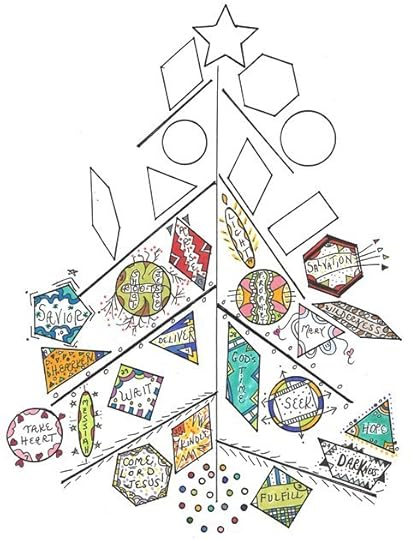
Image by Sybil MacBeth
1. From Sybil: “Advent calendars are not just for kids! Instead of opening daily doors with pictures or retrieving small gifts from pockets, adults and children can mark the day-by-day journey to Christmas by praying/drawing on a blank calendar template. Pray for a person or write and meditate on an Advent word each day. Just the small amount of time it takes to fill the space with doodles and color each day can create a time of quiet, reflection, and listening to God. Set aside a table with a basket of markers and/or colored pencils where family members can work on their calendars. Hang the calendars on the wall for all to see. Watch them grow daily.” (You can find three fantastic, FREE templates here.)
2. Mark the start of the new Church year with a commitment to practice fixed-hour prayer through the daily offices. A great place to start this Advent season is with Phyllis Tickle’s The Divine Hours: Prayers for Autumn and Wintertime.
3. Choose 26 people who do difficult, prophetic work, who serve from the margins, or who are in a special season of waiting and anticipation. Pray for them. Encourage them. Listen to them. Make them the focus of your Advent calendar (see above). Consider presenting them with a small gift—a kind note, a cup of coffee, a donation, a few extra volunteer hours, a public shout-out, a bouquet of flowers or pot of homemade soup. (I’m thinking of people like Lisa Sharon Harper, who has worked tirelessly on immigration reform; Justin Lee, who models and practices “living in the tension” through his work with the Gay Christian Network; Karla, the struggling mother of three whose infectious smile greets thousands of people at our local food pantry here in Rhea County; our friends from Samaritan’s Purse working with Ebola patients in West Africa; or Sarah Bessey, who is expecting Tiny #4 soon.)
4. Consider setting up your manger scene progressively, one set of figures at a time. Wait until Christmas Day to add Baby Jesus. It’s as if the rest of the figurines are waiting in anticipation—just like you and your family.
5. From Sybil: “Cut two-inch pieces of yellow or tan yarn. Whenever you or your children notice an act of kindness during the day, invite them to add a piece of hay to Jesus’ bed.”

Photo by Sybil MacBeth
6. Church leaders: Check out these great, interactive prayer station ideas from Theresa Cho. The series of Advent-themed prayer stations engage all the senses and are meant for an intergenerational community (thought there are also some additional stations just for toddlers). You can find another series of prayer stations here and here.
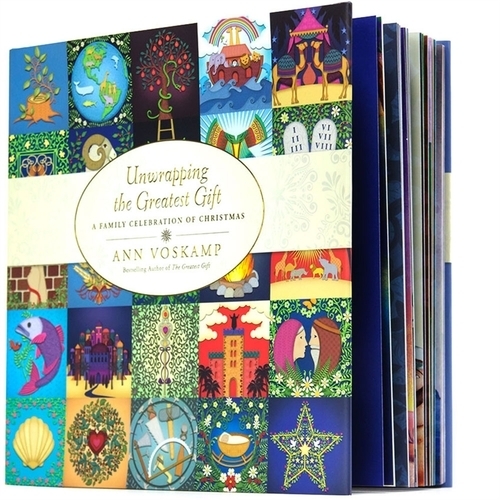
7. Start a Jesse Tree tradition in which ornaments representing various biblical figures and events in the redemption story are placed on a tree, their stories unfolding one at a time each day of Advent, building up to the arrival of Jesus. This is a great way to bring children into the spirit of the Advent season through biblical stories and images, and Ann Voskamp has quite a few resources for doing this well: The Greatest Gift: Unwrapping the Full Love Story of Christmas, Unwrapping the Greatest Gift: A Family Celebration of Christmas, and a whole Web site full of FREE printable ornaments, coloring pages, cards, gift tags, etc.
8. Participate in the “Stay Woke” movement, which invites participants to reflect and act on the lectionary readings from Advent with visual art, literary and biblical reflections, music, podcasts, calls to action, and more. Hosted by the folks at Theology of Ferguson, Stay Awoke “is a project of people interested in exploring the depths of the darkness and interaction with light through the time of Advent.” Writes Mickey Jones: “It is an experiment in spiritual honesty during a time of the year that is often covers up the pain and struggle of the world with a giant glittery bow.” Follow the hashtag #StayWokeAdvent on social media.

9. Commit this Advent season to educating yourself (or your faith community) about a particular pervasive injustice—mass incarceration, human trafficking, child brides, infant & maternal mortality, violence against women, etc. Write prayers of prophetic lament around these injustices and generate plans of action to respond to them. Identify activists, peacemakers, and faith leaders who are working to bring light into the darkness and listen and respond to them with humility. Consider leaving just one holiday tradition behind this year, so that the absence (of a fancy meal, a familiar decoration, a favorite ornament) is a reminder of how much justice has yet to be realized in world where the Kingdom has been inaugurated but not yet consummated. Let the cry of your heart this season be, “Come, Lord Jesus.”

Photo by Sybil MacBeth
10. From Sybil: “One way to teach children (and adults) about watching and waiting—but not in vain—is with bulbs. From a garden or big-box home store, purchase an amaryllis or several paperwhite narcissus bulbs. Fill a container with potting soil or stones. Plant the bulb in the soil or stones without about half of the bulb showing above the surface. Place the pot near a sunny window and water frequently….Start the bulbs on the first day of Advent. Gentle daily watering functions as a form of Advent discipline. Somewhere in the latter days of Advent or on one of the twelve days of Christmas, the plant will start to flower.”
11. Introduce an Advent wreath into your home. Light a different candle each Sunday of Advent—one for hope, one for peace, one for joy, and one for love—concluding with a fifth candle representing the light of Christ to be lit on Christmas Eve or Christmas Day. You can find traditional Advent wreath ideas here, and some lovely, custom wooden wreaths here.
12. Pay attention. Jesus showed up in an unexpected way at an unexpected time, and he just keeps on doing it. Don’t get so focused on having a powerful Christmas morning moment that you miss that quiet, unglamorous moment when Jesus shows up in day-to-day life, when his presence makes itself known in some new, convicting, or comforting way. Mark that moment, no matter when it occurs, with light—a lit candle, an orange and yellow doodle in your Advent candle, a moment in the sunshine. Revel in the surprise and make it a mini-Christmas.
4 Additional Resources…1. The Season of the Nativity by Sybil MacBeth
2. Silence and Other Surprising Invitations of Advent by Enuma Okoro
3. The Prophetic Imagination by Walter Brueggemann (to complement our series)
4. A Journey Toward Home: Soul Travel from Advent to Lent by Kristin Carrocinno and Christine Sine.
The lectionary is rich this time of year, and as I get back to blogging through the Scripture readings each week, our focus will be on paying attention to the prophetic witness of the prophets, connecting them to the Christmas story and to our present longing for God's will to be done on earth as it is in heaven. For my own Advent calendar, I'll be picking out key words from the biblical prophecies assigned to each week (Isaiah 64:1-9; Isaiah 40:1-11; Isaiah 61:1-4, 8-11; and 2 Samuel 7:1-16) and adding them to my "Pay Attention" Advent tree. (I've gone ahead and filled out the first one for Sunday, Nov. 30.) Check Instagram, Facebook and Twitter for the key words each day, as well as reflections on Advent, prophecy, and God-with-us. I'd also love to share your own key-word Advent trees, so feel free to send images my way!
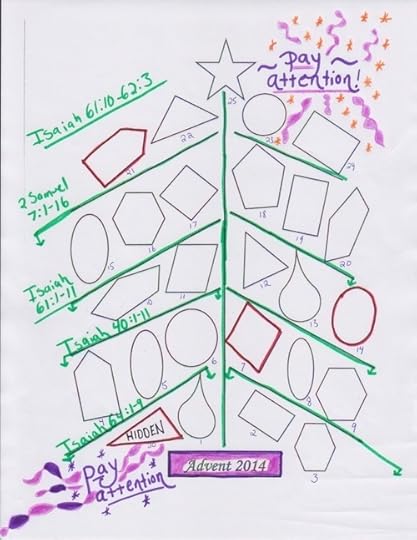
***
What Advent ideas would you add? What plans do you and your faith community have for this time of year?



November 24, 2014
Ask Scot McKnight...(Response)
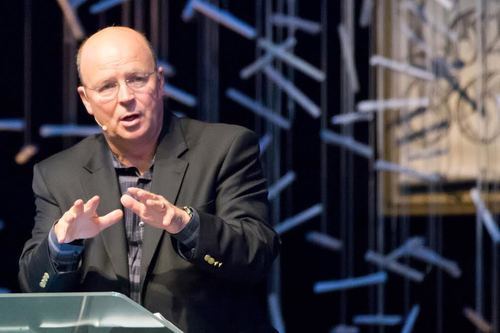
Today I am thrilled to share Scot McKnight's responses to YOUR questions as part of our ongoing, reader-generated interview series. There are few modern-day biblical scholars who have influenced me more than Scot McKnight. His Jesus Creed blog was one of the first I followed religiously, and books like The Blue Parakeet, The King Jesus Gospel, and A Community Called Atonement remain among some of my most recommended. A professor of New Testament at Northern Seminary in Lombard, Illinois, Scot is a world-renowned scholar, writer, and speaker. He is the author or editor of fifty books and he writes and curates of one of the most popular evangelical blogs on the Internet. Scot’s newest book, Kingdom Conspiracy: Returning to the Radical Mission of the Local Church is already making waves, generating quite a bit of conversation online and among evangelical leaders and thinkers. Scot's responses are thorough and gracious. I hope you enjoy the conversation as much as I did.
***
From RHE: Scot, you're one of those writers/theologians/biblical scholars that keeps me in the evangelical conversation. Every time I think to myself, "That's it! I'm through with evangelicalism for good!" another interior voice says, "Well, Scot McKnight's an evangelical. If it works for him, maybe it can still work for you." So my question is: What would you say to young evangelicals disenchanted with the label because of all the political and social baggage that comes along with it? What does it mean to be an evangelical, and why might it still be worth identifying as such?
Rachel, I’m honored for you to say that about helping you see the breadth of evangelicalism.
Let’s agree that evangelicalism is almost uncontainable in a definition. But we can give a ballpark generic-package, lump-into-one-ball idea: evangelicalism affirms the necessity of personal faith in Jesus as Lord and Savior; it affirms the primacy of Scripture in forming beliefs and convictions; it affirms the centrality of Jesus’ life, death, burial, resurrection and rule.
Yet evangelicalism transcends its core beliefs and has a history of its people and that means there’s some sociology or social description in this term so that it refers to America’s Calvinist and revivalist and holiness and Anabaptist impulses. Some are very evangelical and some are barely.
I love that diversity and that breadth; there’s lots of room on evangelicalism’s village green. There’s so much to be proud of, too: So many people have been transformed by the gospel, so many moms and dads have become better parents and so many kids better kids and siblings; there are so many institutions formed – hospitals, schools, missionary organizations, NGOs, etc – and I’m proud to say this is my family. I’m proud too of how evangelicalism is shedding its anti-intellectual heritage and we are seeing scholar after scholar arising in so many fields, not just Bible or theology.
But we are all short-sighted so we remember what has happened most recently. How so? evangelicalism is now seen by many as Jerry Falwell and James Dobson and GOP orientations and that means political baggage is strewn around the platform. I’ll leave the progressive evangelical voice to the side, but it too has politicized the faith at times.
So I’ll tell you how I cope: I’m sometimes embarrassed by the in-bedded-ness of many evangelicals with Republican and Democrat politics. I’m embarrassed much more by its choice to aggrandize itself through the machinations of power and power-mongering and politicking and wooing and buying of voice and authority. I’m embarrassed that evangelicalism sought the way of culture war rather than the way of a cruciform-shaped life embodied in churches.
I cope by saying “I’ve got some crazy uncles and come crazy nephews and some crazy aunts and some crazy nieces.” I cope by reminding myself that I’m not all that good myself and that some see me as one of those crazy uncles or nephews. I cope by knowing that we all need the cross and routine celebration of eucharist by confession. I cope by saying we are broken and the brokenness will not end until kingdom finally comes. I cope by reminding myself that every group or denomination or affiliation has problems. No group has got it all right.
And I would urge this: For some reason, many who grew up in evangelicalism want to say they are evangelical when they are not. I don’t understand this. I know some folks who say they are evangelical and they are not remotely close but seem unwilling or afraid to confess aloud that they are no longer evangelical. There is more to Christianity than evangelicalism.
From Liz: I realize you are a parent and a grandparent. As I sort through my (primarily painful) experiences in evangelical settings, I feel very protective of my two young daughters. For the most part, we have avoided church, and on the rare occasions we attend, I don't allow them to go to the children's program because I don't want them to hear the same violent messages about God-ordained genocide and worldwide flooding that were so cheerfully recited to me as a child. As a parent and grandparent, how do you navigate evangelicalism and sort through the positive and negative ways it might impact your loved ones?
Our Bible tells those stories and I want my grandchildren to hear those stories. I don’t want to shield them from those stories. Those stories are part of our story if we are Christians who believe the Bible.
But I want them to learn that the sacking of cities in violence and the flooding of the earth leading to death is preliminary to the end of violence and the undoing of violence and the reversal of violence in the cross and resurrection of Jesus.
Liz, I don’t want to purge the Bible of anything. I don’t want to snip out any lines or verses. I don’t want to pull out my favorites and teach only those. I want the Bible’s whole story because that whole story, ironically, makes sense only by including each of those voices – the same voices that are alive and well in our churches today. I once made my case for this by saying it is the “blue parakeet” passages that lead us to think deeper about how the Bible works as a story leading to Jesus.
From Adam: Scot, you and a bunch of others I am aware of are moving toward Anglican ordination or at least membership. Do you think this is a broader movement or does it just happen to be a number of people on my radar? What do you think is drawing you and others toward Anglicanism?
Adam, good question, and sociologists will almost certainly tell us this number is marginal and not anything like a major shift. So it’s probably folks you are in contact with.
Now that question about drawing is interesting. I once did some research on why some evangelicals shift into Catholicism and I found that the emphasis on history and liturgy was one element. But this is what I hear when I listen to my fellow Anglicans: Many have tired of the constant upbeat drum beat of what’s new and what’s the next big thing and what we have just learned. Some have been wounded by church life as they know it among “low” church folks and perhaps most wonder if Sunday morning is mostly about a 45 minute sermon.
Many have learned that a lectionary-based and liturgy-shaped church service has amplitude, that a shorter sermon can get the job done, and that everything finally leading all of us to the cross and eucharist is the noblest way to complete our Sunday worship together.
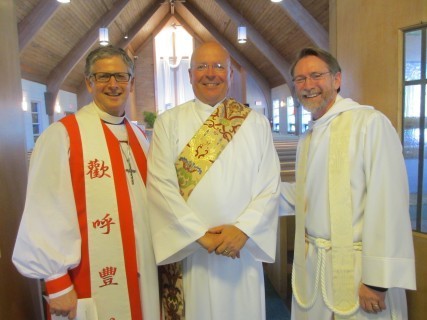
But let me say this as most important: “church” is not simply about coming to a church service on Sunday morning. Church is a fellowship of believers who love one another, know one another, worship with one another, eat with one another, enjoy one another, struggle with one another, grow with one another, and … much more than even that. Fellowship, Adam, when done well will lead us to see our local church as the one for us, regardless of its denominational connection.
From RHE: In Kingdom Conspiracy, you argue that “kingdom” is the biblical term most misused by Christians today and you suggest that the term cannot be correctly applied outside the context of the local church. You begin the book by contrasting “skinny jeans kingdom people” with “pleated pants kingdom people.” Tell us what you mean by that?
Rachel, I have been listening for 20-plus years to how the term “kingdom” is being used by Christians. My book is a response to popular usage, not to the nuances among scholars.
I grew up in a kind of Christianity that did not use this term except perhaps for the millennium or for heaven itself. So kingdom for us was future. Then I read the Synoptic Gospels and then George Ladd and became convinced we need to develop a “kingdom” theology. I’d like to say my generation of evangelicals brought this term into the church with some enthusiasm, but I have been growing more and more concerned about two things:
The misuse of the term (I mean “unbiblical” uses of) kingdom, andThe diminishment of church by preferring kingdom.So I have said a few things here and there in books but kept thinking people weren’t really hearing what I was saying. So I wrote a whole book about it, Kingdom Conspiracy.
So here it goes: In contemporary usage I hear “kingdom” used for two primary dimensions--for public sector social justice activism (I call this “skinny jeans” because a pastor told me a story about his social justice associates who wore skinny jeans) and for seeing kingdom as God’s redemptive power unleashed wherever that power is unleashed (again, I call this pleated pants kingdom because of the same story). It’s a fun image I play with.
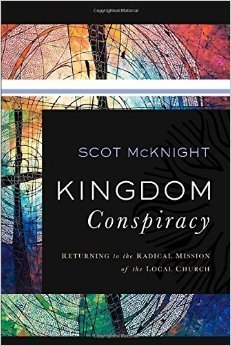
I see both ideas – justice and redemptive power unleashed – as vital to any good biblical theology of kingdom but they both reduce kingdom. And they reduce kingdom at the expense of the church. Not all but the trends have been set.
Now I make these points about social justice kingdom and redemptive power kingdom only because of where I stand on what the Bible says about “kingdom.” The term has five elements: a king, a rule of a king, a people the king rules, a law by which the king reveals how to live as one of his people, and a land in which the king rules.
The first group tends to take the law, see justice as its core expression, apply it in the public sector (social justice), and then see that as kingdom work. But this erases Israel and the church as the people of Jesus’ kingdom and makes America the place of Jesus’ rule. And often enough it erases redemption too. Yes, this means at times progressives and at times conservatives are equating kingdom with America. (Let’s sit on that one for a while and think about it.)
The second group reduces kingdom to redemptive power and therefore it becomes a spirituality or personal salvation or healing or a charismatic moment or a social act that breaks through with God’s will or a cultural good that evokes God’s will now done on earth – and like the former view – out goes Israel and the church and we lose the dynamic of the kingdom.
If I can get one idea on the chalkboard it is this: a kingdom is a people ruled by a king. Those three elements, the core of the above five elements, all need to be present if we going to do kingdom work.
From Jonathan: How do I, as a committed member of a local church, get past my disappointment with the staff, past the hurts and harms this church has inflicted upon me, past my disappointment with the programs we offer and the missions we undertake and the focus of our service, and still be a productive member that helps the church fulfill its' ministry in our community? How best do I serve here?
Jonathan, I’m going to circle back and say I’ve touched on this already. First, we need to embrace Bonhoeffer’s quintessential observations in the early part of Life Together: we need to cease with our idealism about the church and embrace the reality of the church. It’s made of sinners like us who struggle to get their way and who resist what God wants and we are all in this struggle against God and one another and only when we surrender to the reality of the church do we embrace the church. It is a Christ-based and Spirit-formed reality designed for sinners to be welcomed in the presence of God.
But I know some have suffered sadly under corrupted toxic leaders; some have been abused in spiritual and emotional and physical and sexual and psychological ways. For these, the leaders and churches are culpable and stand guilty before God for their failures.
We are called to forgive and to embrace. Sometimes we are not capable of forgiving and we pray for God to give us more grace. Sometimes we are prepared to reconcile but the perpetrators refuse the light of truth; sometimes they are false leaders; sometimes they are toxic.
This means we sometimes have to abandon that local fellowship to find more grace. But we should abandon that fellowship only in the hope of reconciliation some day… I like to say the “first hour in heaven” will make all things right. Could be a tough opening hour in heaven for many.
So my prayer for you is that you will show a better way to the leaders, the way of grace and forgiveness and embrace and hope and transformation in the light.
From Ella: My Pastoral Theology professor brought to the table a statistic that only 2% of senior pastors in Pentecostal churches are women, even though the tradition has long allowed women to serve in high positions of ministry. 51% of the graduates from the local Bible college are women. Why do you think this 2% statistic is as low as it is?
I don’t know if your numbers are accurate, but let’s just say the numbers of women grads and women available are out of whack with numbers in leadership. Of that we can be certain.
Why?
Male authority.
Male authority establishing a culture.
Male authority sometimes justifying male authority by appeal to Scripture.
(I add: Yes, we at least need to admit that some of our brothers and sisters genuinely disagree with us on how to read the Bible about women and church ministries.)
Male authority that does not stand up for women, teach about women, tell stories of women in the church.
Male authority that does not intentionally seek change and cultural transformation and space for women who are called by God to preach and teach and lead.
Males and females who have, sometimes impatiently, turned this into a fight, into a culture war, instead of the grace of conversation over time as we each listen to God’s Word as the way forward.
From Rick: Why can't the Cubs win?
Wait til next year, and you will rise up and call me blessed.



November 23, 2014
Sunday Superlatives 11/23/14
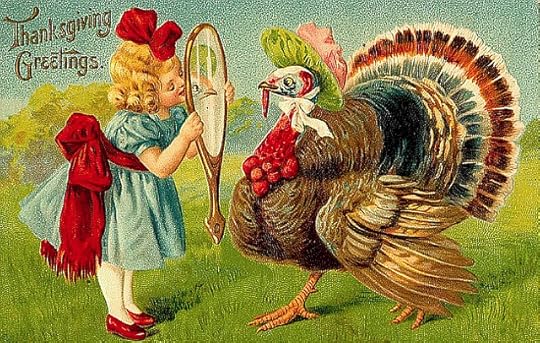
© 2011 Playing Futures: Applied Nomadology, Flickr | CC-BY | via WylioAround the Blogosphere…
Funniest:
Mallory Ortberg at The Toast with “Bible Verses Where The Word ‘Philistines’ Has Been Replaced With ‘Haters’”
“He had so many flocks and herds and servants that the haters envied him…”
Wisest:
Mihee Kim-Kort with “Blessed are the peacemakers”
“Being a peacemaker means more than hasty promises and temporary truces. It means seeing conflict as opportunity for deeper connection.”
Bravest:
Micha Boyett with “Ghostly Grief: On Miscarriage and Loss”
“Miscarriage is the strangest grief, ghostly but intensely embodied.”
Cleverest:
Janet Potter at The Millions with “Book Titles Rewritten to Get More Clicks”
Coolest:
Ivan Kislov’s fox photography
Most Thought-Provoking:
Richard Beck with “When God Became the Devil” and “Christus Victor and Progressive Christianity”
“…With Anselm a change happened, a theological twist still alive today. Worried as he was about the role of the Devil in Christus Victor schemes Anselm shifted the problem away from the Devil and toward the character of God. The drama of salvation was no longer an external conflict between God and the Devil but an internal conflict within God's own heart, a conflict between God's wrath and God's love.”
Most Powerful (READ THIS!):
Naomi Shihab Nye with “Gate A4”
“She was laughing a lot by then. Telling about her life, patting my knee, answering questions. She had pulled a sack of homemade mamool cookies— little powdered sugar crumbly mounds stuffed with dates and nuts— from her bag and was offering them to all the women at the gate. To my amazement, not a single traveler declined one. It was like a sacrament. The traveler from Argentina, the mom from California, the lovely woman from Laredo— we were all covered with the same powdered sugar…Then the airline broke out free apple juice and two little girls from our flight ran around serving it and they were covered with powdered sugar too. And I noticed my new best friend— by now we were holding hands— had a potted plant poking out of her bag, some medicinal thing, with green furry leaves. Such an old country traveling tradition. Always carry a plant. Always stay rooted to somewhere. And I looked around that gate of late and weary ones and thought, This is the world I want to live in. The shared world.”
Most Relatable:
Alece Ronzino at Deeper Story with “When None of It Mattered”
“I quit church, stopped reading my Bible, gave up on any real semblance of a prayer life — and you know what? He was big enough to take it. His feelings weren’t hurt when I spoke words of doubt instead of faith. He didn’t mind when I cried rather than worshipped. He is God enough to handle this human heart of mine. He didn’t scold me; He didn’t heap 'shoulds' or shame on me; He didn’t tell me to let go and let Him. He just sat in The Great Sadness with me.”
Most Eye-Opening:
Mona Eltahawy at The New York Times with “Fighting Female Genital Mutilation”
“I am a 47-year-old Egyptian woman. And I am among the fortunate few of my countrywomen whose genitals have not been cut in the name of ‘purity’ and the control of our sexuality…”
Most Practical:
Shauna Niequist with “Ten Thoughts on Hosting Thanksgiving”
“Remember: it’s about the gathering, not about the food. This is the most important thing to keep in mind. I know Thanksgiving might be the most food-driven of all holidays, but the people are always more important than the food. The gathering is what’s significant…that’s what you remind yourself when the turkey’s taking forever or the stuffing’s dry.”
Best Reminder:
Michelle DeRusha at Grace Table with “What a Monk and Two Delivery Men Taught Me About Hospitality”
“When we define hospitality as what happens around our own dining room table and with our own family and friends, we limit its scope and potential. We stop far short of the kind of hospitality Christ had in mind. In Jesus’ eyes, hospitality includes how we welcome and receive everyone – not just the guests we invite to cross our thresholds, but those who cross our paths in ordinary, everyday ways as well.”
Best Analysis:
Boz Tchividjian at RNS on Matthew 18
“This well-known biblical passage has all too often been a justification for 1) not reporting abuse disclosures to the authorities and 2) convincing sexual abuse victims to privately confront their perpetrators. Needless to say, this misreading and misapplication of Jesus’ words is incredibly harmful on a number of fronts. More importantly, it’s simply not consistent with the person and character of Jesus.”
Best Conversation:
Tyler Tully, Drew Hart, and Scot McKnight discuss (and debate) Kingdom Conspiracy here, here, here, and here.
Best Analogy:
Ty Grigg at Missio Alliance with “Candy Land Christianity”
“We expect Christians to do good, but we also expect that it will happen automatically and with little to no effort on our part. We are game pieces being moved down the path of Candy Land Christianity.”
Best Question:
Lisa Sharon Harper at Sojourners in “The Grand Jury and the Rorschach Test” with
“What if the church today upon baptism called believers to examine all the ways we have soaked in the unconscious biases of the American empire? What if we reexamined our relationships with and assumptions of who should have power in our nation, in our cities, and in the church?”
From Twitter…
"Love does not dishonor others." The way we treat the people we disagree with the most, is a report card on our faith.
— Bob Goff (@bobgoff) November 22, 2014
They tried to bury us. They didn't know we were seeds. ~ Mexican Proverb
— Robyn Afrik (@afrikadvantage) November 20, 2014
Global warming isn't real because I was cold today! Also great news: World hunger is over because I just ate.
— Stephen Colbert (@StephenAtHome) November 19, 2014
If you want to see real separation anxiety watch an adult who can't find their phone.
— Honest Toddler (@HonestToddler) November 20, 2014
Please RT to raise awareness of the plight of cats trapped in a folk music environment pic.twitter.com/lL9eI4Tkos
— Ash Warner (@AlsBoy) October 22, 2014
On my nightstand…
All the Light We Cannot See by Anthony Doerr
The Cross and the Lynching Tree by James Cone
On Instagram…Well, I finally decided to join Instagram. So far I’ve posted a picture of a sink full of dirty dishes (with a filter, of course). We’ll see how this goes…
A photo posted by Rachel Held Evans (@rachelheldevans) on Nov 11, 2014 at 6:38am PST
***
So what caught your eye online this week? What’s happening on your blog?



November 19, 2014
The False Gospel of Gender Binaries

© 2009 Carmelo Speltino, Flickr | CC-BY-SA | via Wylio
Not long ago I had the pleasure of working with Adrian,* a visual artist with a quick wit, easygoing spirit, and creative eye. After an afternoon of laugher and collaboration, Adrian opened up about what it’s been like working with other religious people, particularly evangelicals.
“I’m intersex,” Adrian said, with a shrug of the shoulders. “Evangelicals don’t have a category for me, so there’s no real place for me in their church.”
(Intersex is a term used for a variety of conditions in which a person is born with a reproductive or sexual anatomy that doesn’t seem to fit the typical definitions of female or male. Learn more here.)
Adrian’s words hurt my heart, but I knew they were true. Over the past two years, I’ve heard similar sentiments expressed by transgender Christians (people whose gender identities differ from what is associated with the sex they were assigned at birth), and of course by gay, lesbian, and bisexual Christians. Often I hear of childhoods plagued by bullying, exclusion, depression, and fear, all made worse when the churches that were supposed to love and care for them rejected them because they did not fit into rigid gender binaries.
“God made male and female,” culture warriors like to thunder. “Any deviation from traditional gender and sexuality norms represents a serious sin and threat to the gospel.”**
This claim is often punctuated by advocacy for rigid, hierarchal gender roles based on stereotypes in which all men are described as being “wired” one way (as providers, leaders, and fighters), and all women are described as being “wired” another way (as followers, nurturers, and homemakers).
Even the Vatican reinforced this message this week in an international forum on marriage where “complementarity between man and woman in marriage” was described by Pope Francis as “the root of marriage and family.”
While most people indeed have a heterosexual orientation and identify with a single gender that was assigned to them at birth, it has become increasingly clear that this is not the case for everyone, that gender and sexuality might better be understood as manifesting themselves along continuums, with male/female, masculine/feminine, heterosexual/homosexual existing at the poles but with a variety of identities, orientations, and expressions in between. Science and psychology continue to confirm this as a reality, with the American Psychological Association no longer characterizing variations in sexual orientation and gender identity as disorders, only warning that stigmatization based on them can negatively affect mental health.
People do not typically choose their sexual orientations or gender identities the way one might choose to wear a watch or to take cream in their coffee. Most of my gay and lesbian friends recall feeling different from a young age, frightened at the prospect of being disowned from their families and cast out of their churches because of something they simply could not change. Efforts intended to reverse sexual orientation through prayer and counseling, once popular within evangelicalism, have proven not only ineffective, but destructive, leading to multiple apologies from former leaders of those movements. Sadly, for many LGBT Christians, those apologies came too late, and the messages they received through "conversion therapy" led them into marriages based on secrets, or, tragically, to suicide.
Nearly all of us would fail to conform to the generalizations made by the most strident complementarians, but intersex people like Adrian, and LGBT people like those you might meet at The Gay Christian Network, are truly in the minority. And unfortunately, they are consistently subjected to stigmatization and marginalization by religious people who refuse to share bathrooms with them, who disassociate with churches that welcome them, who mock and ridicule them and compare them to pedophiles and idolaters, and who withhold money from charities that employ them. Christians are told that sharing civil liberties with LGBT people constitutes religious persecution, that sexual minorities should induce a “gag reflex,” and that defending gender binaries is as essential as defending the gospel itself.
But what sort of gospel is only good news for the majority? What sort of gospel leaves people behind just because they are different?
The gospel of Jesus Christ is not so fragile as to be unpinned by the reality that variations in gender and sexuality exist, nor is it so narrow as to only be good news for people who look and live like Ward and June Cleaver. This glorification of gender binaries has become a dangerous idol in the Christian community, for it conflates cultural norms with Christian morality and elevates an ideal over actual people.
No doubt some will argue that we cannot build our theologies around “exceptions” like Adrian. When I bring up intersex people in conversations about gender and sexuality, I am typically met with blank stares, shrugged shoulders, and dismissive platitudes about how most people fit neatly into male and female categories and generalities, so we shouldn’t worry about the outliers.
But if Jesus started with the outliers, why we shouldn’t we? If Jesus started with the poor, the sick, the marginalized, and the minorities then why would we dismiss them as irrelevant to our theology of gender and sexuality?
I can’t help but think of the Ethiopian eunuch from Acts 8. He was a sexual and ethnic minority, and it was considered “unbiblical” for him to even enter the assembly of God, much less be baptized (Leviticus 21:20; Deuteronomy 23:1). But when the eunuch learned about the gospel through his reading of Isaiah and the witness of Philip, his response is profound: “Look! There is water! What is to prevent me from being baptized?”
Philip could easily have responded by quoting Bible verses and appealing to tradition. He could have dismissed the eunuch as an anomaly, not worth the time and effort to fight for his inclusion in this new family of God. But instead, Philip baptized the eunuch in the first body of water the two could find. He remembered that what makes the gospel offensive isn’t who it keeps out, but who it lets in….starting with you and me.
Now, I’m not suggesting we abandon conversations about the Bible and sexual ethics, nor am I interested in promoting a “genderless society” (as some have bizarrely claimed, somehow supposing that acknowledging the existence of gray requires dismissing the existence of black and white). I am suggesting, however, that Jesus didn’t die on the cross to preserve gender complementarity. Jesus didn’t die on the cross to ensure that little girls wear pink and little boys wear blue. Jesus lived, taught, died, and rose again to start a new family in which Jew and gentile, slave and free, male and female are all part of one holy Body. Certainly there will be those who reject the gospel because of the cost of discipleship, but let it be because of the cost of discipleship, not the cost of false fundamentals, not because they've been required to change something they cannot change.
There is this tendency within certain sectors of Christianity to assume that if our theology “works” for relatively privileged (often for straight, upper-middle-class, Western men), then it should work well enough for everyone else, and the rest of the world should conform to it. But if our theology doesn’t “work” for the least of these to whom Jesus first brought the gospel and through whom Jesus still presents himself today, then it doesn’t work at all.
If the gospel’s not good news for Adrian, then it’s not good news.
***
*Name changed to protect privacy.
**And because someone is bound to bring it up, here is Matthew 19:4 in context. As you see, Jesus is responding to a question about divorce, not about gender binaries.
Finally, be sure to check out Dr. David Gushee's recent lecture at the Reformation Project entitled, "Ending the Teaching of Contempt Against Sexual Minorities."



Rachel Held Evans's Blog
- Rachel Held Evans's profile
- 1710 followers



